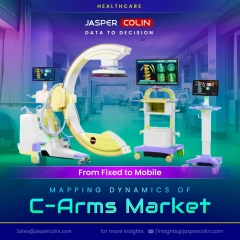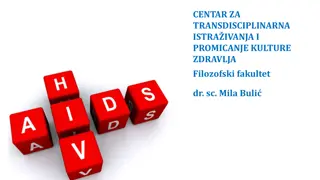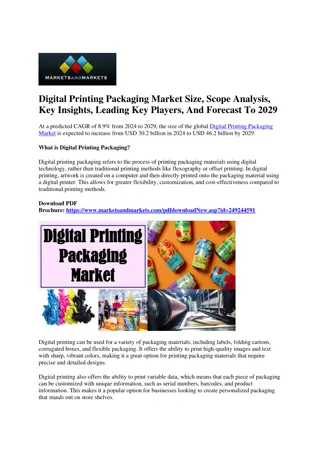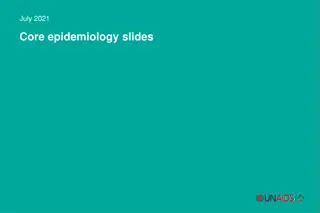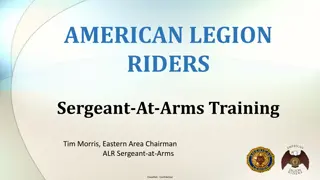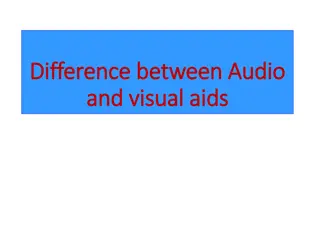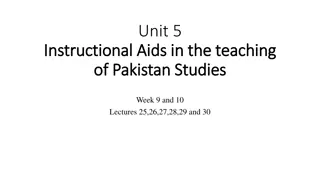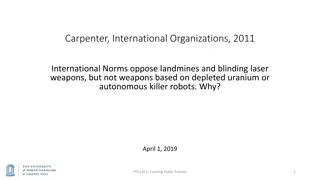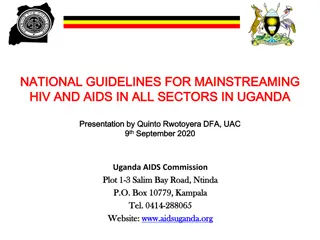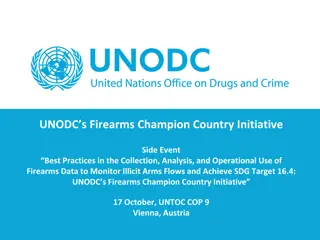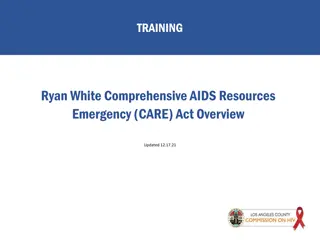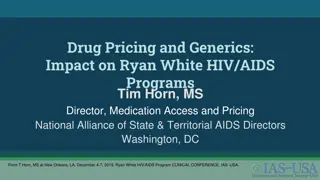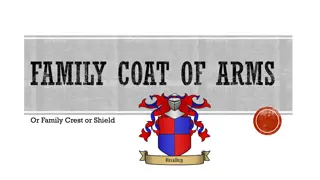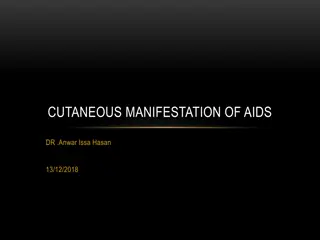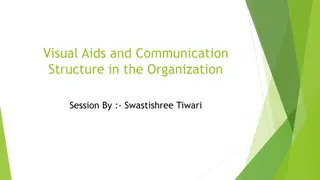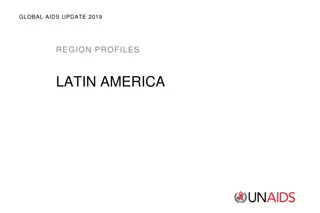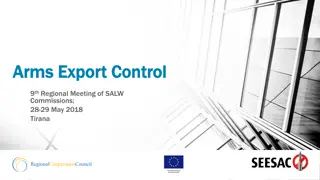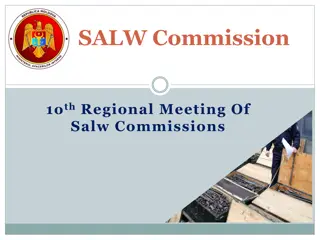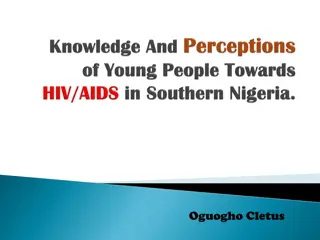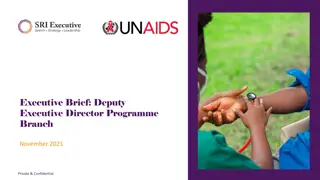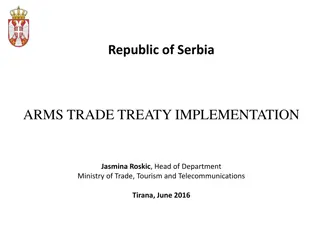
Innovative Viviendo Valiente Project for Dallas County Latinos
The Viviendo Valiente project aims to address HIV prevention and care among Mexican individuals in Dallas County. With a multi-layered approach and community engagement, the project works to overcome barriers, provide education, and promote healthy behaviors. Collaborating with various partners, the project focuses on identifying at-risk individuals, linking them to care, and organizing events to enhance awareness and testing. By leveraging cultural events and partnerships, Viviendo Valiente strives to make a significant impact on the Latino community's HIV outcomes.
Uploaded on | 0 Views
Download Presentation

Please find below an Image/Link to download the presentation.
The content on the website is provided AS IS for your information and personal use only. It may not be sold, licensed, or shared on other websites without obtaining consent from the author. If you encounter any issues during the download, it is possible that the publisher has removed the file from their server.
You are allowed to download the files provided on this website for personal or commercial use, subject to the condition that they are used lawfully. All files are the property of their respective owners.
The content on the website is provided AS IS for your information and personal use only. It may not be sold, licensed, or shared on other websites without obtaining consent from the author.
E N D
Presentation Transcript
VIVIENDO VALIENTE PROJECT OVERVIEW Other Latinos = 17% Importance of Viviendo Valiente Importance of Viviendo Valiente Latinos - 38% of the 2,368,139 Dallas Co. population (Census, 2010) Mexican = 83% Mexicans - 83% of Dallas Co. Latino population (Pew Hispanic Center) Dallas area Latinos were most likely to receive late dx - 2005-09 (Ryan White, 2010) 36% - AIDS dx within one year of HIV dx (Ryan White, 2010) 29% - AIDS dx within one month of HIV dx (Ryan White, 2010) Core Objectives Core Objectives Identify and recruit HIV positive and at-risk individuals of Mexican descent, 18 years of age or older Link and engage HIV+ individuals in care/treatment Remove barriers to testing and care
VIVIENDO VALIENTE PROJECT OVERVIEW What makes this project unique and What makes this project unique and innovative? innovative? Use of a multi-layered approach to promote prevention, HIV testing and linkage to care, address stigma and other key factors to promote engagement: Family and community orientation Community engagement using a health/wellness approach Significant collaboration with community partners within and outside of the HIV continuum of care Leveraging of opportunities provided by cultural, festive, sports and other events
PARTNERS AND COLLABORATORS Internal Programs Community Partners Strengthen Collaborations Intensive linkage to care Case management Prevention Behavioral Health Peabody Health Ctr. Trinity Health/Wellness Ctr. The Los Barrios Unidos Clinic LULAC Dallas Rainbow Council Univision DFW Trans Pride Initiative Proyecto Inmigrante Kaliente (Gay, Latino bar) Mexican Consulate Latino Cultural Center Teatro Dallas AIDS Interfaith Network AIDS Education & Training Ctr Dallas Concilio Dallas City Council County Commissioners
INTERVENTION DESCRIPTION Service Service delivery delivery setting Dallas County setting Priority population Priority population Mexican, 18 or older, positive or at high risk for HIV Staffing Staffing 3 Promotores de Salud (PdS) Data Management Specialist Program Director Principal Investigator
INTERVENTION DESCRIPTION Viviendo Viviendo Valiente and individual level and will include and individual level and will include Valiente services services and activities and activities will occur at the community, family , group will occur at the community, family , group Community Community assessment to understand needs, barriers and what matters to priority population C Community ommunity events planned and implemented in partnership with priority population, the advisory board and community partners framed by overall health & wellness objectives set within cultural, festive, health, and family themes providing HIV education and testing when appropriate Family Family level relationship building by PdS to build trust, address stigma, promote healthy behaviors Group Group intervention, Eban to be tailored for priority population and provided to participants Individual Individual guidance and support provided by PdS to promote linkage to care for HIV positive individuals and ensure retention
INTERVENTION DESCRIPTION Recruitment Recruitment strategies Engage priority population to clarify needs, barriers to care, preferences Outreach at community events by volunteers and PdS Social media Traditional referrals Enrollment and linkage to care strategy Enrollment and linkage to care strategy Motivational Interviewing to achieve readiness Use of the Intensive Linkage to Care strategy based on ARTAS Strategic use of incentives to promote participation Retention Retention strategy strategy - - Ongoing engagement with PdS and/or case manager to resolve barriers to care EBAN intervention to promote empowerment Engagement with activities sponsored by the HIVE and Viviendo Valiente Close monitoring of attendance at medical and other appointments and quick follow up when appointments are missed Client incentives Client incentives Strategically provided to promote participation in study activities, getting tested, attendance at medical appointments and retention strategies
LOCAL EVALUATION Goals and objectives of the local evaluation Goals and objectives of the local evaluation To determine whether the key components of the Viviendo Valiente model were developed and implemented as set forth in the plan To determine whether existing AIDS Arms programs provide culturally congruent services to the priority population To evaluate the effectiveness of the EBAN intervention for the priority population To select one critical priority area brought forth by the Community Assessment for further in depth study IRB: who will prepare protocol and which IRB will you work with? IRB: who will prepare protocol and which IRB will you work with? AIDS Arms Evaluator/PI Independent IRB - TBD
LOCAL EVALUATION Methods to be used Methods to be used Focus groups Surveys Key informant and client interviews Client record review Desired study participants and their role in the evaluation Desired study participants and their role in the evaluation As previously described Data collection instruments and strategies to be employed Data collection instruments and strategies to be employed TBD
LOCAL EVALUATION Data analysis approaches to be used Data analysis approaches to be used TBD Agency s dissemination of key findings Agency s dissemination of key findings Workshops offered through local, regional and national forums including conferences Meetings with partner agencies through the AIDS Arms Network of Affiliated Agencies, Ryan White Planning Council, etc. White papers Articles published in journals focusing on practice and services. Others TBD
PROJECT TIMELINE FOR YEAR 1 Start up activities (months 1 Start up activities (months 1- -6) 6) Notify key stakeholders Hire/train program director and staff Form local evaluation team/plan Initiate IRB approval process. Engage collaborators Create Advisory Council Initiation of demonstration project (months 7 Initiation of demonstration project (months 7- -12) Conduct community assessment Develop marketing materials Develop protocols Launch programs and activities Conduct process monitoring Modify Eban Model to be Mexican-centric 12) Evaluation Evaluation planning & Participate in initial meeting with ETAC planning & implementation implementation Key programmatic milestones Key programmatic milestones Program Director hired Process of PdS selection started
GRACIAS! Martha A. Guerrero, BA Martha A. Guerrero, BA Program Director | Viviendo Valiente Program Director | Viviendo Valiente martha.guerrero@aidsarms.org martha.guerrero@aidsarms.org 214.521.5191 214.521.5191 Manisha H. Maskay, Ph.D. Manisha H. Maskay, Ph.D. Principal Investigator Principal Investigator Executive Director, Community and Client Services | AIDS Arms, Inc. Executive Director, Community and Client Services | AIDS Arms, Inc. manisha.maskay@aidsarms.org manisha.maskay@aidsarms.org 214.521.5191 214.521.5191

